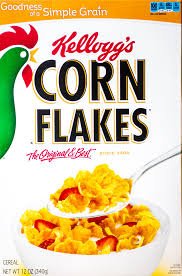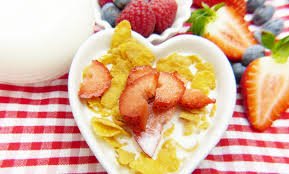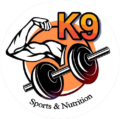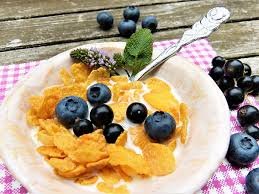
The Nutritional Powerhouse: Kellogg’s Corn Flakes as a Healthy Breakfast Choice
In the fast-paced world we live in, starting the day with a nutritious breakfast is crucial. Among the myriad of breakfast options available, Kellogg’s Corn Flakes stand out as a timeless and wholesome choice. This article explores the many health benefits of Kellogg’s Corn Flakes, shedding light on why it remains a popular breakfast option worldwide.
enhancing
The Origin and Evolution of Kellogg’s Corn Flakes
Kellogg’s Corn Flakes, first introduced in the early 20th century, have become a staple in households around the globe. Developed by Dr. John Harvey Kellogg, the original intent was to create a healthy and convenient breakfast option. Over the years, Kellogg’s Corn Flakes have undergone several enhancements, but the core value of providing a nutritious start to the day remains unchanged.
Nutritional Benefits of Kellogg’s Corn Flakes

1. Rich in Essential Vitamins and Minerals
Kellogg’s Corn Flakes are fortified with essential vitamins and minerals, making them a powerhouse of nutrition. Each serving is enriched with vitamins A, B, C, and D, which play vital roles in maintaining overall health. These vitamins contribute to improved immune function, energy production, and bone health.
2. Low in Fat
One of the standout features of Kellogg’s Corn Flakes is their low-fat content. This makes them an excellent choice for those looking to maintain a healthy weight or reduce their fat intake. The low-fat content also makes them heart-friendly, reducing the risk of cardiovascular diseases.
3. Source of Dietary Fiber
Kellogg’s Corn Flakes are a good source of dietary fiber, which is essential for a healthy digestive system. A fiber-rich diet helps prevent constipation, lowers cholesterol levels, and aids in maintaining a healthy weight. Including Kellogg’s Corn Flakes in your breakfast routine can contribute significantly to your daily fiber intake.
4. Gluten-Free Option
For individuals with gluten intolerance or celiac disease, finding a suitable breakfast option can be challenging. Kellogg’s Corn Flakes provide a gluten-free alternative, ensuring that everyone can enjoy a nutritious and delicious breakfast without compromising their dietary needs.
Incorporating Kellogg’s Corn Flakes into Your Diet
1. Classic Breakfast Bowl
The most traditional way to enjoy Kellogg’s Corn Flakes is with a bowl of milk. This simple yet satisfying combination offers a quick and easy breakfast option. You can enhance the nutritional value by adding fresh fruits like bananas, strawberries, or blueberries. These fruits not only add a burst of flavor but also increase the fiber and vitamin content of your meal.
2. Smoothie Boost
For those who prefer a liquid breakfast, adding Kellogg’s Corn Flakes to your morning smoothie is a fantastic idea. Blend them with your favorite fruits, yogurt, and a splash of milk or juice. This not only thickens the smoothie but also adds a crunchy texture and boosts the overall nutritional value.
3. Homemade Granola Bars
Kellogg’s Corn Flakes can be used as a base for homemade granola bars. Combine them with nuts, dried fruits, and a natural sweetener like honey. These bars make for a perfect on-the-go snack, providing sustained energy throughout the day.
4. Corn Flake-Coated Chicken
Kellogg’s Corn Flakes can also be used creatively in savory dishes. Crush them and use as a coating for baked or fried chicken. This adds a delightful crunch and a unique flavor to the dish, making it a family favorite.
The Role of Kellogg’s Corn Flakes in a Balanced Diet
While Kellogg’s Corn Flakes offer numerous health benefits, it’s important to remember that they should be part of a balanced diet. Here are some tips to ensure you get the most out of your Kellogg’s Corn Flakes breakfast:
1. Pair with Protein
To create a balanced meal, pair your Kellogg’s Corn Flakes with a source of protein. This could be a serving of Greek yogurt, a handful of nuts, or a boiled egg. Protein helps in muscle repair and growth, and it keeps you feeling fuller for longer.
2. Add Fresh Fruits and Vegetables
Incorporating fresh fruits and vegetables into your breakfast not only enhances the taste but also boosts the nutrient profile of your meal. Fruits like berries, kiwi, and citrus fruits are rich in vitamins and antioxidants, while vegetables like spinach and kale add a dose of fiber and iron.
3. Watch the Sugar Content
While Kellogg’s Corn Flakes themselves are low in sugar, it’s essential to be mindful of the additional ingredients you add. Opt for natural sweeteners like honey or maple syrup instead of refined sugar. Reading labels and choosing low-sugar alternatives can help in maintaining a healthy diet.
The Environmental Impact of Choosing Kellogg’s Corn Flakes
In addition to their nutritional benefits, choosing Kellogg’s Corn Flakes can also be a more environmentally friendly option compared to other breakfast choices. The company has made significant strides in sustainability, from sourcing ingredients responsibly to reducing packaging waste. By opting for Kellogg’s Corn Flakes, you are not only making a healthy choice for yourself but also supporting a brand committed to environmental stewardship.
Conclusion
Kellogg’s Corn Flakes have stood the test of time as a healthy and convenient breakfast option. Rich in essential vitamins and minerals, low in fat, and high in dietary fiber, they provide a nutritious start to the day. Whether enjoyed in a classic bowl with milk, incorporated into a smoothie, or used creatively in recipes, Kellogg’s Corn Flakes offer versatility and a range of health benefits. By including them in a balanced diet and being mindful of additional ingredients, you can enjoy a wholesome breakfast that supports overall well-being. Make Kellogg’s Corn Flakes a part of your morning routine and take a step towards a healthier lifestyle.

